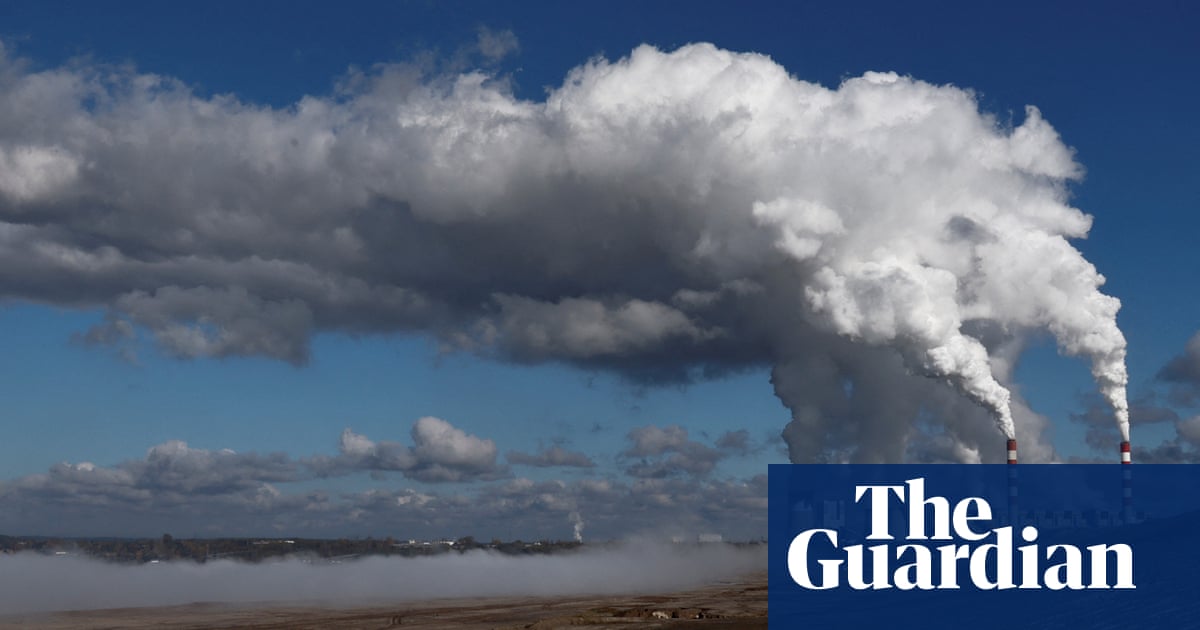According to research, the world is falling behind on almost all necessary policies to reduce carbon emissions.

According to new research, in order to avoid the most severe consequences of climate change, coal usage must be decreased seven times faster, deforestation must be slowed four times faster, and global public transportation must be expanded six times faster compared to current rates.
Many nations are not meeting the necessary requirements for reducing greenhouse gas emissions, even though there has been advancements in renewable energy and the use of electric cars.
According to the State of Climate Action 2023 report, this setback makes it even more unlikely to keep global temperatures from exceeding 1.5C above preindustrial levels. The authors suggest that the world must:
-
Shut down approximately 240 typical-sized coal-fired power plants annually from now until 2030.
-
Build public transportation systems in cities worldwide at a rate equivalent to three times the size of New York City annually over the course of the next ten years.
-
Stop the destruction of forests, equivalent to 15 football fields every minute, during this decade.
-
Boost the annual growth rate of solar and wind energy from 14% to 24%.
-
By 2030, the US, Europe, and other high-consumption countries should limit their intake of meat from ruminant animals (such as cows and sheep) to approximately two servings per week.
The authors cautioned that if drastic measures are not taken, the goal of limiting warming to 1.5C will become unattainable. Sophie Boehm, a research associate at the World Resources Institute and the main writer of the report, stated that global attempts to achieve this goal have been inadequate. Despite numerous warnings and urgent calls, our leaders have not taken sufficient action to address climate change at the necessary speed and scale. These delays have left us with limited options for securing a sustainable future for everyone.
She stated: “We cannot afford to make small adjustments. Instead, we require significant changes in every industry within this decade.”
Even though countries made a commitment two years ago at Cop26 in Glasgow to limit global warming to 1.5C above preindustrial levels, public funding for fossil fuels continues. Many countries are also increasing their production of fossil fuels, such as the UK government’s recent announcement of new annual licensing rounds for exploration projects in the North Sea.
Several nations, including the UK, are raising subsidies and providing tax incentives for fossil fuels. Following Russia’s takeover of Ukraine in the beginning of 2022, government funding for fossil fuels greatly rose: subsidies nearly doubled from previous rates in 2020 and reached their highest levels in almost ten years, according to the report.
On Tuesday, the State of Climate Action 2023 report was released, created by six climate thinktanks. It analyzed all areas of climate policy implemented by governments globally. While other recent research has shown a quick increase in the adoption of eco-friendly technology internationally, such as the growth of renewable energy, this report identified limited positive developments.
Ignore the newsletter advertisement.
after newsletter promotion
The demand for electric vehicles has significantly increased, more than three times as much as in 2020. However, out of the 42 factors examined, this was the only one that showed enough progress to reduce emissions by almost half compared to 1990 levels. This reduction is necessary to have a chance at meeting the 1.5C limit and keeping our planet within a safe range.
As per the International Energy Agency, if all nations were to follow through on their commitments to decrease carbon emissions, the Earth’s temperature would rise by approximately 1.7 degrees Celsius from pre-industrial levels. However, this prediction is based on countries actually enforcing policies instead of just stating their intentions. The State of Climate Action report reveals that countries have not yet provided the necessary policy measures to achieve their goals and have not fully implemented the policies that they do have.
Razan Al Mubarak, the UN climate change champion, and a member of the United Arab Emirates delegation hosting the Cop28 conference in Dubai this month, urged all nations to review their policies. She emphasized the need for world leaders to acknowledge the limited progress made thus far and create a plan for continued success. Al Mubarak also emphasized the importance of using this moment as a catalyst for swift and decisive action.
Source: theguardian.com

